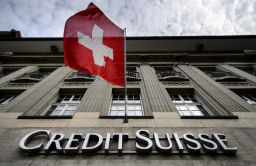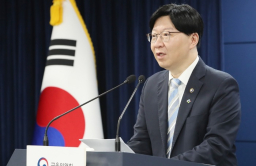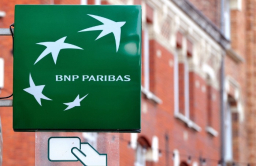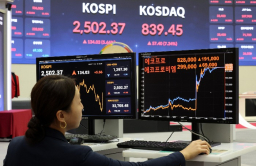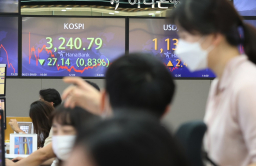-
KOSPI 2577.27 -2.21 -0.09%
-
KOSDAQ 722.52 -7.07 -0.97%
-
KOSPI200 341.49 +0.02 +0.01%
-
USD/KRW 1396 -2.00 0.14%
S.Korea mulls fines on Barclays, Citi for short-sale violations
Short selling
S.Korea mulls fines on Barclays, Citi for short-sale violations
The financial authorities are said to be considering record-high fines of up to 90 billion won for naked shorting
By
Nov 12, 2024 (Gmt+09:00)
3
Min read
News+
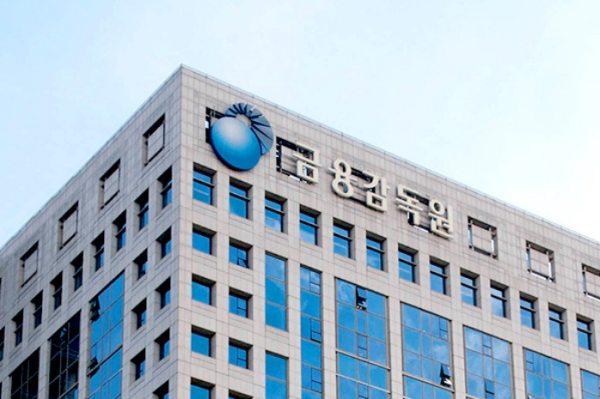
South Korea’s financial authorities are considering fining British multinational investment bank Barclays plc and US investment banking group Citigroup Inc. for their illicit stock short-selling trades, in what could be the country’s highest-ever penalties for such violations.
According to sources from the Korean financial authorities on Monday, a probe by the Financial Supervisory Service (FSS) recently found that Barclays and Citi have conducted naked short-selling of Korean stocks.
Stock short-selling is a legitimate stock trading strategy in Korea but naked short-selling of stocks, in which an investor sells shares without first borrowing them or determining they can be borrowed, is banned under the country’s Capital Markets Act.
A lower committee under the Financial Services Commission (FSC) is reviewing the result of the FSS investigation, said a Korean financial authority official familiar with the matter.
“They are deliberating over whether to impose a fine of up to 70 billion won ($50 million) on Barclays and a maximum of 20 billion won on Citi,” said the official.
The final decision will be made by the FSC after the lower committee’s review.
RISE IN FINES FOR SHORT-SELLING VIOLATIONS
If the British investment bank is fined 70 billion won, it would mark a record-high fine in Korea for illegal stock short-selling trades.
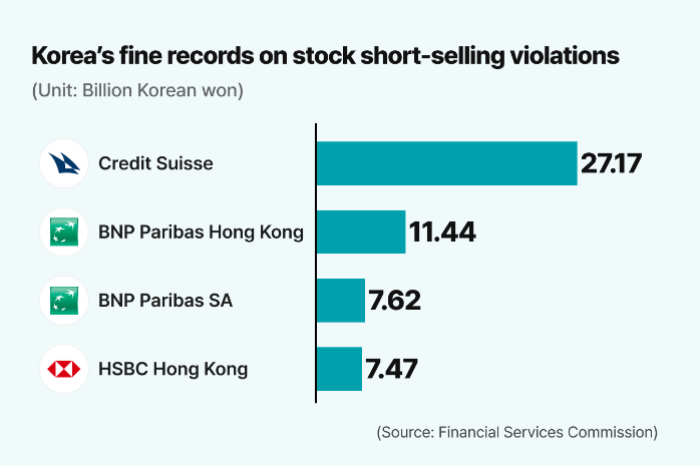
A fine on 35 stock short-selling violations last year totaled 37.1 billion won. The previous record-high fine of 27.17 billion won was imposed on two subsidiaries of the former Credit Suisse Group.
Fines for stock shorting violations have steadily increased in Korea since the government heightened punishments against such breaches in 2021, allowing the financial authorities to impose a maximum 100% fine on profits from short-selling violations.
But it remains to be seen whether the authorities will be able to slap Barclays and Citi with such exorbitantly high fines ahead of the resumption of short-selling trades in Korea in March next year.
Korea imposed a market-wide ban on stock short-selling in Korea in November 2023, and the government extended the ban through the first quarter of 2025.
FSC Vice Chairman Kim So-young on Monday reaffirmed that stock short-selling will resume on March 31 next year.
The ban on legitimate short-selling of stocks is considered a hindrance to foreign investors’ investment in Korean stocks.
In early June, global index provider MSCI, which categorizes Korea as an emerging market, downgraded the country's short-selling accessibility in its annual review – a move widely seen as a hurdle for Korea’s inclusion in MSCI’s developed-markets index.
STRONG RESISTANCE FROM FOREIGN IBS OVER HEAVY FINES
Protests from multinational banks against fines for short-selling violations are also strong.
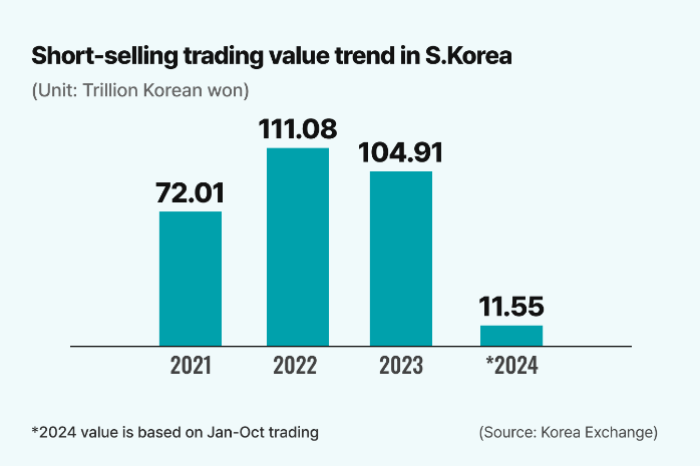
BNP Paribas has filed a suit to revoke its fine, arguing that its naked shorting was not intended nor did it generate any significant profit.
In December last year, the FSC fined BNP Paribas SA, its Korean brokerage unit, and HSBC Holdings plc a combined 26.52 billion won for naked short-selling.
In response to their protests, the Korean financial regulator insists that the banks must pay for their recklessness in overseeing naked short-selling trades, which have been banned under the country’s capital market law.
Korea’s judiciary body also has different views from its financial authorities.
Korea's financial authorities argue that, under Korea’s Capital Markets Act, traders are only allowed to short shares they first borrow, thus multinational investment banks’ naked short-selling orders are illegal regardless of the result of the final transactions.
But the country’s court recently ruled that only the shares shorted without being first borrowed are subject to fines.
If an investment bank enters a market order to short 10 billion won worth of shares without first borrowing them but sells and repurchases only 1 billion won worth, the IB can be fined only for the final 1 billion won in transactions.
Write to Han-Gyeol Seon at always@hankyung.com
Sookyung Seo edited this article.
More To Read
-
Jul 03, 2024 (Gmt+09:00)
-
Jun 13, 2024 (Gmt+09:00)
-
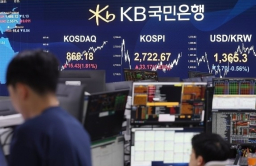 Korean stock marketKorea's short-selling ban impedes MSCI index upgrade
Korean stock marketKorea's short-selling ban impedes MSCI index upgradeJun 07, 2024 (Gmt+09:00)
-
Dec 26, 2023 (Gmt+09:00)
-
Nov 06, 2023 (Gmt+09:00)
-
Jun 22, 2021 (Gmt+09:00)


